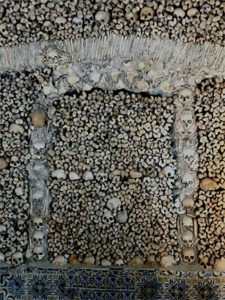Last week I attended the annual outdoor Lisbon Book Festival where I participated in a panel with two other authors (Michael Washburn and David Moscovich) and our publisher, Adelaide Books. I read a few short excerpts from my memoir, The Speed of Dark, and then Stevan Nikolic, the publisher, asked what drove me to write, a challenging question that defies an easy answer.
What drives anyone to create for its own sake? Trying my best to answer honestly, I said writing for me is about creativity and keeps my mind engaged unmercifully without rest. I consider what I see and hear as possible stories or nuggets ripe for enlargement. It can be tiring, but it’s always stimulating, and makes almost everything interesting. However, putting my thoughts on paper is just one step along the way. I consider my thoughts and imaginings as writing, albeit without pen and paper or computer. In brief, then, for me ‘writing’ is creative engagement, just like science was for most of my life. Without the final step of writing – tying it together into a coherent, creative package – the drive seems to stay in neutral and go nowhere. Thus, I write.
While I was satisfied with my answer at the time, I soon realized I’d skirted the question. A writer is defined by writing, not by imagining or speaking. What Stevan had actually asked me was why do I bother to record my thoughts on paper? Good question. I believe the most common answer authors give is, “I need to write.” But that’s no answer; it simply defers the question to what is “need?”
Perhaps it’s vanity, I think, to see my name in print, to be recognized, to have ambition realized and to leave a mark that I was here, on Earth, trying my best to hitch a ride on legacy. Legacy? Does that mean that I write because I’ll die someday, so that my descendants, at least, will know something about me and have a small morsel to brag about who I was and what I did? After all, I’m contributing a bit during my short visit on this planet. Shouldn’t that be recorded – written – although I’ll never know after I’m dead whether what I write is read by kin or strangers I’ll never meet or care about?
With these thoughts in mind, I visited the famous Chapel of Bones in Evora, Portugal, which was built in the first half of the seventeenth century. The walls and columns are lined with human skulls and bones from some 5000 skeletons of Franciscan friars that had been buried in several dozen church cemeteries. Bones! Skulls! Dead people – complete strangers – that we know nothing about – no legacy, no heart-warming stories, no good deeds or bad ones: nothing written. I doubt any of them wrote articles or books. My mind takes flight to Mozart buried in a pauper’s grave, an unmarked plot in St. Marx cemetery in Austria. How many bones of brilliant people, potential geniuses perhaps, are included among the anonymous bones in the Chapel of Bones in Portugal

Chapel of Bones in Evora, Portugal (Photo by Joram Piatigorsky)
The following was posted in the Chapel of Bones by Fr. António da Ascenção (translation by Fr. Carlos A. Martins, CC):
Where are you going in such a hurry traveler?
Stop … do not proceed;
You have no greater concern,
Than this one: that on which you focus your sight.
Recall how many have passed from this world,
Reflect on your similar end,
There is good reason to reflect
If only all did the same.
Ponder, you so influenced by fate,
Among the many concerns of the world,
So little do you reflect on death;
If by chance you glance at this place,
Stop … for the sake of your journey,
The more you pause, the more you will progress.
That last line – The more you pause, the more you will progress – makes me wonder whether I write to pause, to reflect and thus progress, whatever that might mean. Do I write to ‘progress’?
Among my thoughts on why I write, I recall an excerpt of the famous poem, Elegy in Country Church-Yard, written in 1750 by Thomas Gray, which reminds me that death is the final equalizer of kings and serfs, and poets and engineers, and all of us who have the good fortune of tasting life and the privilege of asking “Why?”
Let not Ambition mock their useful toil,
Their homely joys, and destiny obscure;
Nor Grandeur hear with a disdainful smile,
The short and simple annals of the poor.
The boast of heraldry, the pomp of pow’r,
And all that beauty, all that wealth e’er gave,
Await alike th’ inevitable hour.
The paths of glory lead but to the grave.
So, I suppose I write because I like to, despite the “destiny obscure,” to engage my bones and body in the process, and to ponder further why I write.






I write (and read) to revive and share my wonder, in contact with the unknown, the imaginary, the mystery, terror, and beauty of the world.